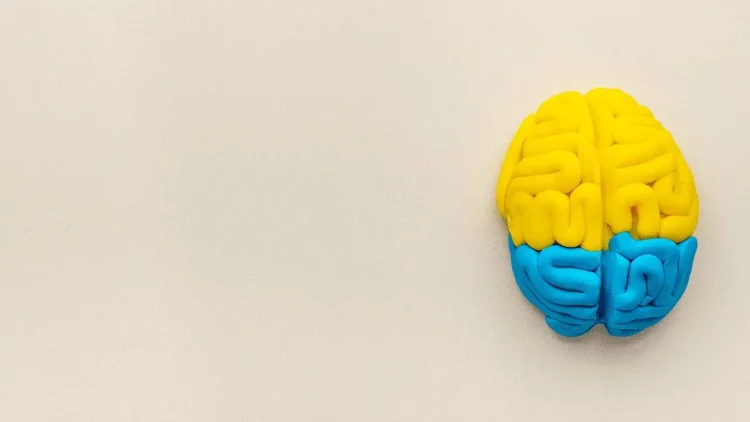Mental health, once relegated to hushed conversations behind closed doors, is now a prominent and necessary topic in both public discourse and personal wellbeing. As awareness grows about conditions such as anxiety, depression, PTSD, bipolar disorder, and more, so too does our understanding of the complexity involved in navigating these challenges. Central to this evolving awareness is the realization that managing mental health is not—and should not be—a solitary journey. Support networks, whether they take the form of family, friends, peer groups, professionals, or community organizations, play a vital role in sustaining mental resilience, promoting recovery, and fostering a sense of belonging. In this article, we delve into why these support systems matter, how they can be cultivated, and the transformative effect they can have on individuals facing mental health challenges.
The Role of Community in Mental Health
Human beings are inherently social creatures. Our brains are wired for connection, and our wellbeing often reflects the strength and quality of our relationships. In the context of mental health, community is not just a source of comfort—it is a foundational pillar of stability. Studies consistently show that individuals with strong social connections experience lower levels of stress, reduced rates of depression, and a greater likelihood of recovery following mental health episodes. Community acts as both a preventative measure and a form of ongoing support. When someone feels seen, heard, and understood, it reduces isolation—a common symptom and trigger of mental distress.
Support networks offer emotional validation, practical assistance, encouragement, accountability, and sometimes even intervention. Importantly, they help to counter the stigma that so often surrounds mental health struggles. By creating spaces where open dialogue is possible, communities allow individuals to speak their truth without fear of judgment, and in doing so, they help normalize the experience of mental health difficulties.
Types of Support Networks
Support networks can take many forms, and often, a combination is most effective. Each layer of support serves a distinct function, and their interplay provides a holistic framework for mental wellness.
1. Personal Support (Family and Friends):
The people closest to us are often the first to notice when something is wrong. Trusted family members and friends provide immediate emotional support, often without the need for formal processes. Their presence alone—whether through a conversation, shared activity, or simply being there—can significantly ease psychological burden. However, they may lack the tools or understanding to provide specialized help, underscoring the importance of education and empathy in personal circles.
2. Professional Support (Therapists, Psychiatrists, Counselors):
Mental health professionals offer structured, evidence-based interventions, including talk therapy, medication management, and cognitive-behavioral strategies. These relationships are confidential, non-judgmental, and therapeutic by design. Professionals can help individuals navigate complex emotions, diagnose mental health conditions, and develop coping mechanisms tailored to their needs.
3. Peer Support (Support Groups and Peer-Led Communities):
Sometimes, the most powerful validation comes from others who’ve walked a similar path. Peer support groups—whether in person or online—provide a safe space to share experiences, challenges, and strategies without fear of alienation. These networks promote empathy, reduce shame, and offer practical advice grounded in lived experience.
4. Institutional and Community-Based Support (Schools, Workplaces, Religious Groups, NGOs):
Structured environments can significantly affect mental health outcomes. Schools can implement mental health education and early intervention programs. Workplaces can provide Employee Assistance Programs (EAPs) and mental health days. Faith communities can offer spiritual counsel and community support. NGOs and nonprofit organizations often provide access to services for those who are underserved or in crisis.
5. Digital Support (Online Communities, Apps, Helplines):
Technology has expanded the possibilities of connection. For those who cannot access in-person support or prefer anonymity, digital platforms like online forums, mental health apps, and crisis text lines offer immediate and accessible assistance. While these should not replace professional care, they can complement existing networks and offer vital resources in moments of need.
How Support Networks Improve Mental Health Outcomes
Support networks don’t cure mental illness—but they significantly enhance one’s capacity to cope, recover, and thrive. Their benefits are multifaceted:
Reduced Feelings of Isolation: One of the most common and dangerous experiences in mental health struggles is the sense of being alone. Support networks provide a buffer against loneliness, offering companionship and reducing the perception of social rejection.
Improved Coping Skills: Supportive environments allow individuals to witness and learn from others’ strategies, whether it’s grounding techniques, healthy communication, or stress management. Shared wisdom can be empowering.
Encouragement to Seek Professional Help: Sometimes, it’s a friend or peer who encourages someone to speak to a therapist or see a doctor. A strong network often acts as a bridge to more formal care.
Accountability and Monitoring: Trusted individuals can help monitor behavior changes or potential warning signs, such as withdrawal, irritability, or harmful ideation, and step in with support or intervention.
Validation and Emotional Comfort: Simply having someone say “I understand” or “you’re not alone” can be profoundly healing. Empathy validates one’s experience and reduces internalized stigma.

Barriers to Building Support Networks
While the benefits are clear, not everyone has equal access to robust support systems. There are several barriers that can prevent people from building or accessing mental health support networks:
Stigma and Shame: Cultural, societal, or familial beliefs can discourage open discussion about mental health. Individuals may fear judgment or rejection, leading them to suppress their struggles.
Geographic or Social Isolation: Living in rural areas, being homebound, or experiencing mobility limitations can reduce access to community-based resources.
Financial Barriers: Therapy and other mental health services can be cost-prohibitive for some, especially in countries without comprehensive healthcare systems.
Trauma and Trust Issues: Individuals with a history of trauma or abandonment may find it difficult to trust others or open up about their feelings.
Overburdened Support Systems: Friends and family may want to help but feel overwhelmed or unequipped, particularly if they are dealing with their own challenges.
Strategies for Building and Strengthening Support Networks
Creating a network of support is not about waiting for the right people to appear; it often requires intentional effort and vulnerability. Here are steps to cultivate meaningful connections that support mental health:
Start with One Honest Conversation: Reach out to a trusted friend, colleague, or family member. Sharing that you’re going through a tough time can be the first step toward building a supportive dialogue.
Join a Support Group: Look for local or online groups that cater to specific mental health conditions or shared experiences. These communities are often welcoming, and confidentiality is typically respected.
Engage in Community Activities: Volunteering, joining a book club, attending local events, or participating in fitness classes can create opportunities for social connection and purpose.
Use Technology to Your Advantage: Online platforms like Reddit’s mental health forums, apps like TalkLife or Headspace, and helplines provide accessible entry points into support systems, especially for those who feel isolated.
Educate Your Circle: Sometimes, people want to help but don’t know how. Sharing resources or expressing what kind of support you need—whether it’s just listening or checking in periodically—can make your network more effective.
Seek Professional Guidance: Therapists can not only offer direct help but can also assist in identifying external support options, like community programs or partner services.
Set Boundaries and Expectations: A healthy support system respects personal boundaries. Be clear about what is and isn’t helpful, and don’t be afraid to step back from relationships that are consistently harmful or draining.
The Power of Mutual Support
Support is not a one-way street. Offering support to others can also be incredibly therapeutic. Engaging in mutual care reinforces the idea that everyone has value and something to contribute, regardless of their current state. It shifts the narrative from helplessness to connectedness, and it cultivates empathy. When individuals contribute to a supportive environment, they help normalize the conversation around mental health and reduce the isolation others may feel. This collective approach not only benefits those struggling but helps build more compassionate communities overall.
Moving from Awareness to Action
The conversation around mental health has evolved, but action must follow awareness. Governments, employers, schools, and health institutions must do more to ensure support networks are integrated into everyday life. Mental health policies should focus not only on treatment but on prevention through community engagement. Employers can invest in mental wellness programs. Schools can train staff to recognize early signs of distress. Faith-based and cultural groups can create spaces for open dialogue.
On an individual level, we must all ask ourselves: “What can I do to support the mental wellbeing of those around me?” Whether it’s checking in on a friend, offering to accompany someone to a doctor’s appointment, or simply listening without judgment, these small acts create a web of safety and compassion.
Conclusion: A Shared Responsibility
Mental health challenges are deeply personal, but they are not problems we should be forced to face alone. Support networks—rich, diverse, and compassionate—are among the most powerful tools we have for promoting healing, hope, and resilience. By building and maintaining these networks, we reinforce the truth that none of us are beyond help, and none of us are truly alone. In a world increasingly defined by disconnection, building support networks for mental health is not just beneficial—it is essential.

















































